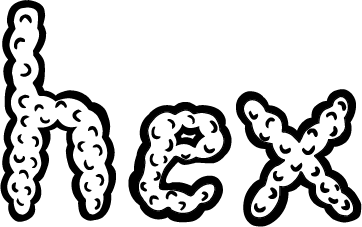It’s not about honey. That’s the first thing you learn—it’s about what drove you to honey to begin with. As a cub, I detected in my parents some fundamental quality I seemed to lack. Oneness. Selfhood. Identity. Call it what you will. I was sure that I’d been born without something terribly vital—that at my core was a great, yawning void—and from an early age, I attempted to fill this hollow with honey.
A taste for honey would have been natural in any other pooh bear, but my relationship with honey was nowhere near natural. I used to run away from my parents, losing myself in mossy glens deep in the Hundred Acre Wood, gorging on honey until I was quite literally ill. Jamming a paw down my throat, I would regurgitate the viscous goo, letting it ooze over my woolly yellow fur, then continue feeding until I slid into hyperglycemic shock.
By the time I was full-grown, I was two stone overweight and borderline diabetic. I kept honey pots stashed all over the Wood and imagined that I was quite crafty, that none of my friends knew how much I was ingesting, but they were no fools. My dear Piglet tried to bring up the subject, and Kanga and Christopher Robin organized more than one intervention. When they came hunting for me, however, I always managed to give them the slip. I was surly and deliberately cruel when I found my honey pots empty, snapping at Owl and Tigger and Rabbit. Even blameless Roo.
The addict believes himself a skilled enchanter. Works at sleight of hand and misdirection. Thinks he’s hoodwinking everyone, when in truth, he deceives no one but himself. He’s so busy keeping his needs met, his fictions alive, that he’s got no time to consider anyone else.
Or why he craves honey in the first place.
It was one of those dazzling fall afternoons in the Hundred Acre Wood. I’d polished off the last of my honey and was trying not to dwell on the depths to which I would sink once my blood-sugar receded. Piglet and I stood on the bridge. We’d tossed in our pooh sticks. Waiting for them to appear on the far side, we spied Eeyore floating on his back. As I gazed into the donkey’s melancholy eyes, something extraordinary happened. I saw myself, and Piglet, standing on the bridge, as we must have appeared from below.
I saw trees rippling above our heads, their branches vibrating together, their fiery leaves kiting to the forest floor. I saw larks and sparrows, ducks and geese slicing through the blue canopy. And between all these things—purple-scarved Piglet, red-shirted Pooh, boughs, butterflies, birds—I saw ligaments, networks I’d never before noticed. We were all bleeding into and through one another, every one of us, so that when I squinted only slightly, we became nothing more than colors—streaming, cascading, spurting tones and shades, an impressionistic version of the only world I know.
I regained consciousness atop Rabbit’s kitchen table, surrounded by my friends, aware of a burning pain in my chest. I’d collapsed, Piglet said, and they’d carried me to Rabbit’s House, where Owl had insisted that there was no time to waste. Snatching up a pair of shears, the wise old raptor opened my trunk, and there, deep inside my stuffing, he discovered a massive hole.
On the forearm of Piglet and Tigger, of Kanga and Roo, of Eeyore and Rabbit, I spied a new wound—a laceration hastily closed with red thread. My friends had each donated a portion of their cottony insides to help fill the hollow within me. Even Christopher Robin, who stood squeezing my paw, tears spilling over his remarkable lashes, had lopped off his dear blond cowlick to contribute to the cause.
The ache in my chest soon subsided, but the warmth remained, and it occurred to me that my long-held notions of oneness, of selfhood, of identity, were a fairy tale—a story for cubs. The self isn’t the site of strength, I realized; the self is the site of nothing. Without others—without everything that isn’t us—none of us would exist.
Now, whenever I crave honey, I head to Eeyore’s gloomy place and sit with the downhearted donkey, feeling my way into his equine misery. Or I visit the sandy pit where Roo plays, and I join the joey, throwing myself wholeheartedly into his bouncy marsupial games. Or I locate Piglet—my dearest, most steadfast companion—and arm-in-arm, we stroll over to my thoughtful spot.
“Hello!” we shout into the surrounding thicket, aiming for the leafy heart of the Hundred Acre Wood. “My name is Winnie, and I’m a honey-addict!”
Echoing, our two voices bounce off tree trunks and stones, returning to our ears in an unintelligible stream we imagine is the forest’s voice, saying things like keep your head up and I believe in you.
_____
Jen Fawkes is the author of MANNEQUIN AND WIFE, a 2020 Shirley Jackson Award nominee, winner of the 2023 Phillip H. McMath Post-Publication Book Award, and Foreword INDIES gold medalist. Her collection TALES THE DEVIL TOLD ME was a Foreword INDIES silver medalist, one of Largehearted Boy’s Favorite Collections of 2021, and a finalist for the 2022 World Fantasy Award for Single-Author Story Collection. Jen’s fiction has won numerous awards, including the 2021 Porter Fund Literary Prize, and has appeared in One Story, The Iowa Review, swamp pink, Best Small Fictions, and many others. A two-time finalist for the Calvino Prize for fabulist fiction, Jen lives in Little Rock, Arkansas. Her debut novel, DAUGHTERS OF CHAOS, is coming in July 2024 from Abrams Books.
